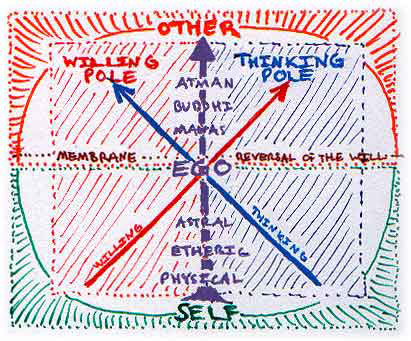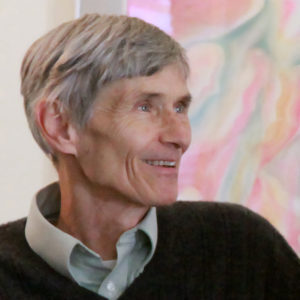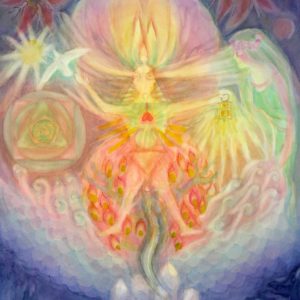What Is Goethean Science?
By Dennis Klocek 5 min read
A basic human response to any situation is either to feel “I like it” or “I don’t like it”. The name for the “I like it” response is sympathy, while the name for the “I don’t like” response is antipathy. These feelings color every response in normal everyday life. As such, they represent a fundamental ground of the soul, and provide the soul with sentience–the capacity to experience sensations and feelings. A soul filled with such feelings and sensations is fundamentally oriented towards the outer world as if it were constantly breathing the sense information inward towards the center of the being. To a soul devoted to sentience, life is an unending series of likes and dislikes. These perceptions plunge the soul into alternating states of alienation and despair, with much loss of energy. What is needed is balance.

Balance Is achieved by blending antipathy and sympathy in the soul. We do this by developing the antipathy in the soul into the capacity to think. This antipathetic development balances the life of sensations and feelings in the soul which are primarily sympathetic. They are sympathetic because the sense life is basically an inbreathing process, where we allow the world to enter into us sympathetically. The fundamental antipathy in thinking allows us to balance the overly sympathetic forces in the soul developed by sense activity. When we truly think about our likes and dislikes we gain some distance from them. They no longer hold us prisoner. This freedom from being held captive by our sensations and feelings gives the soul the power of transcendence. Through transcendence the soul develops the reflective power of intellectual thinking. With the intellect it is possible to balance likes and dislikes and transform them into greater soul forces. Within the soul which has developed intellect, or the intellectual soul, dislikes are transformed in the intellectual soul into the capacity to direct the will in a thoughtful way. Thought-filled will is the soul power of attention. Through discrimination one can choose between what is correct and what is not. Discrimination is willed thought. Attention and discrimination form the basis for soul development. They are formed in the intellectual soul by the transcendent blending of sympathy and antipathy.
This blending, however, is not the end of our development. Attention and discrimination can still be carriers of unbalanced sympathies and antipathies. The attention which, as we have seen, arises out of the sympathetic stream of the will, can carry a residue of sympathies in the intellectual soul. When this happens, the soul develops tremendous forces of will to support its own viewpoint. The forces of discrimination which are needed to balance one-sided attention become negative and discrimination “between” becomes discrimination “against”. In negative discrimination, the sympathies are too strong in support of one’s own views. This state is best described as fundamentalism.
The opposite effect in the intellectual soul can be observed when the discursive, dividing power of discrimination gains the upper hand in the soul. This discursive intellect wanders from subject to subject, finding relevance primarily in the power of its own argument. Reasoning and calculating take the place of direct experience, and the ground of the soul shifts into abstracts, laws, and machine-like thought patterns. The discursive intellect loses the balance of discrimination and in its antipathetic imbalance grows divisive, cold, and calculating. Like the fundamentalist, the abstract thinker becomes gradually convinced that he has achieved the ultimate “truth” about existence. The difference between the fundamentalist and the abstract thinker lies in the source of their “truths”: for the fundamentalist who is coming out of the will/sympathy pole, the truth lies in one’s identification with a Supreme Being, the source of all truth, while for the abstract thinker the truth lies in the capacity of the intellect to draw knowledge from the realm of universal concepts of “laws”. Neither of these two positions is actually incorrect unless one becomes addicted to the power of being “chosen” by God as “special” or totally convinced by a “terrible certainty” of experiment and a pragmatic technology that one’s view is absolutely correct. From this we can see that for both attention and discrimination the danger lies in becoming fixed in an addiction to power available to an intellect which is wedded to the will. When this happens all the warmth, compassion, and intuitive capacities are diminished. Rampant technologies and holy wars are not far behind when the soul loses warmth and compassion.

To heal the split between thinking and the will is the urgent task of modern humankind. To do so requires that the soul once again unite the poles into a transcendent union. In today’s world this union is most vigorously addressed by the sciences which can be grouped under the name “phenomenalism”. The science of phenomenalism was developed out of the work of the great German poet J.W.V. Goethe, whose approach to studying the world blended the two poles of attention (will) and discrimination (thinking) into what he called “higher viewing”. Goethe’s famous Metamorphosis of Plants is a series of botanical essays which he wrote based upon the techniques he developed to initiate “higher viewing.” In these techniques, called “exact sense perception” by Goethe, one pictures to one’s self the exact unfolding of a series of leaves or the growth patterns in a rose, for example. The picturing is at first “discursive” in that it breaks the plant into parts, but in time, regular practice of the inner picturing results in a heightened inner perception of the flow of energies in the plant in an objective way. The flow or life gesture of the plant reveals subtle patterns of growth not perceptible to a discursive, simply logical intellect. It is the flow, in time, which connects the plant to its environment and to the other members of it species or genus.
By means of “higher viewing” we can develop in ourselves the ability to unite the thinking pole with the pole of the will in a harmonious, warm way. Higher viewing seeks to develop a heart that can think by harmonizing abstract logic and sense perception into a transcendent capacity to see with the world rather than just looking at it. Once they are balanced, these two soul polarities meet in the phenomenon, without distortion or desire. The reasoning is not allowed to get ahead of the sensing, and conversely, the sensing is not allowed to run away with the thinking. Thinking and sensing meet in the phenomenon and this experience is given to the soul as a higher feeling, a feeling of knowing. The feeling of knowing is a fruit of the intuition, and as such, its appearance in the consciousness is a symptom that supersensible knowledge is beginning to form capacities for higher cognition in the soul. Goethe’s phenomenalism, then, is the root from which anthroposophy can grow into the world.
To study nature and her phenomena in this way develops what Rudolf Steiner called “heart soul”. Heart soul is the vehicle for warmth and compassion in the human being. The times require that the heart soul be explored and developed. To study and practice Goethe’s phenomenalism can transform our soul life and create within us the space into which moral forces can flow through us an out into our deeds into the world.

Dennis Klocek
Dennis Klocek, MFA, is co-founder of the Coros Institute, an internationally renowned lecturer, and teacher. He is the author of nine books, including the newly released Colors of the Soul; Esoteric Physiology and also Sacred Agriculture: The Alchemy of Biodynamics. He regularly shares his alchemical, spiritual, and scientific insights at soilsoulandspirit.com.
Similar Writings
The Great Creator’s Dream: Freedom, Giveaway and the Task of the Human
Back in the day, way back in the day, the Creator had a dream. And the Great Creator had a dream to make a being that could create in freedom. And the name of that being was the World Mineral Plant Animal Human. The World Mineral Plant Animal Human was given the gift to create…

